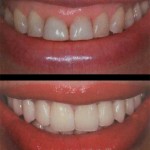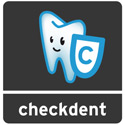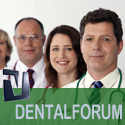Questions and answers on the costs of dental implants and their durability
 The Web provides a great deal of information about dental implants!
The Web provides a great deal of information about dental implants!
While much of this informations useful, a lot of it simply confuses non-experts!
We have provided answers to the most frequently asked question here, as well as links further below!
–
–
–
–
Do implant-based teeth have to be cleaned?
Implanted teeth have to be cleaned even more thoroughly than your own teeth.
The area where the implants show through the gums has to be kept clear of inflammation, otherwise the implants may get inflamed and fall out.
–
Can I even take dental implants?
Implantation has become a common procedure in dentistry. In spite of great advances in this field, some patients are worried about negative “”reactions”” to titanium implants they have read or heard about. The literature on the subject does not mention any side effects when using titanium, even though some implants do fall out in the case of some patients.
–
Why do implants fall out?
- Inadequate cooling when reaming the implant shaft into the jaw bone (dentist’s fault)
- Inserting an artificial root into an inflamed jaw bone (dentist’s fault)
- Prematurely loading the artificial root (dentist’s fault, patient’s fault)
- Poor after-treatment and nicotine abuse further exacerbate these negative factors (patient’s fault)
–
What happens if an implant doesn’t heal properly?
If an implant does not heal properly and has to be removed at some point, it is a shame, but it does not occur frequently. There is no physical damage, as the gap in the bone can be closed by new bone. Renewed implantation is also possible, if desired.
–
Can you fly with dental implants?
Many patients believe that they will no longer be able to go through metal detectors at airports because of titanium implants. First of all, having titanium in your body does not set off any alarm, but even if such devices should come to be used, an implant passport can help you get through.
–
Are dental implants the solution to my dental problems?
Many patients think that a set of teeth which has been undergoing certain changes for decades (up to full dentures) can be completely replaced using implants, under general anaesthesia. When getting full treatment, think about the habits that got you there in the first place. You may need to change your dentist, if your old one failed to inform you of the implications, but you also need to change your own habits, or else you will also lose your implants!
–
I would like a permanent denture, how many implants do I need?
If you have no teeth left in your jaw, then you will generally need 4 implants in the lower jaw and 6 implants in the upper jaw for a permanent denture.
–
How long do dental implants hold?
Scientific studies performed over the last 25 years show implants to be highly effective. How long they hold cannot be specified exactly, but assuming that they heal properly, after 10 years over 90% of all implants still work.
–
How much does an implant cost?
In Europe, a titanium implant itself costs between 500 and 1700 euros. But patients also want to know about the total costs (implant, abutment, crown). Prices vary greatly because of the different components used, so that the total denture may cost between 1400 and 3000 euros.
–
You will find more information on this topic in a forum or in the first dental video lexicon.
VN:F [1.9.22_1171]
Rating: 0.0/5 (0 votes cast)
VN:F [1.9.22_1171]
 A veneer is an ultra-thin, translucent ceramic plate for the teeth – similar to a contact lens. Veneers, or their thinner variant lumineers, are glued onto the surface of the teeth – especially the front teeth – using a special paste.
A veneer is an ultra-thin, translucent ceramic plate for the teeth – similar to a contact lens. Veneers, or their thinner variant lumineers, are glued onto the surface of the teeth – especially the front teeth – using a special paste.











